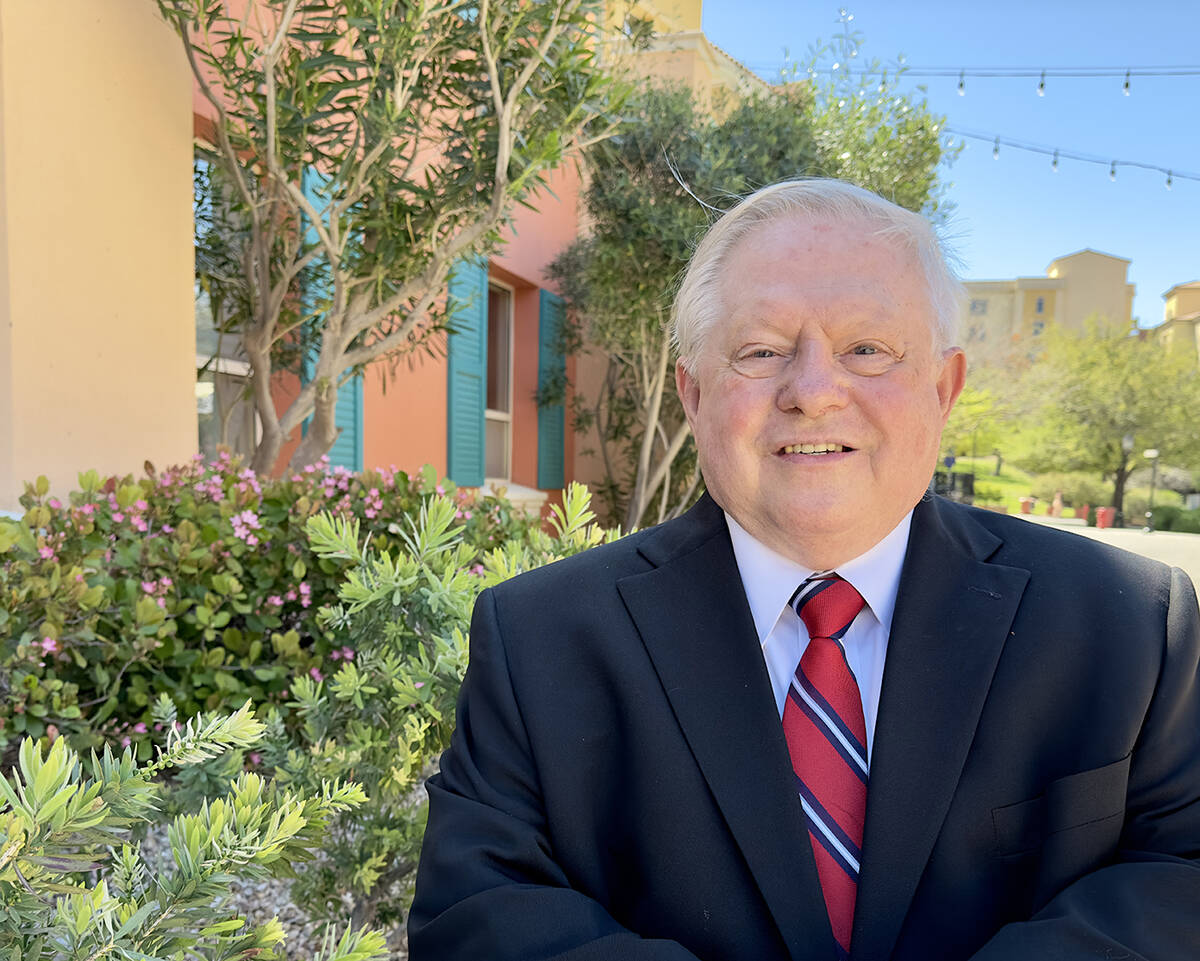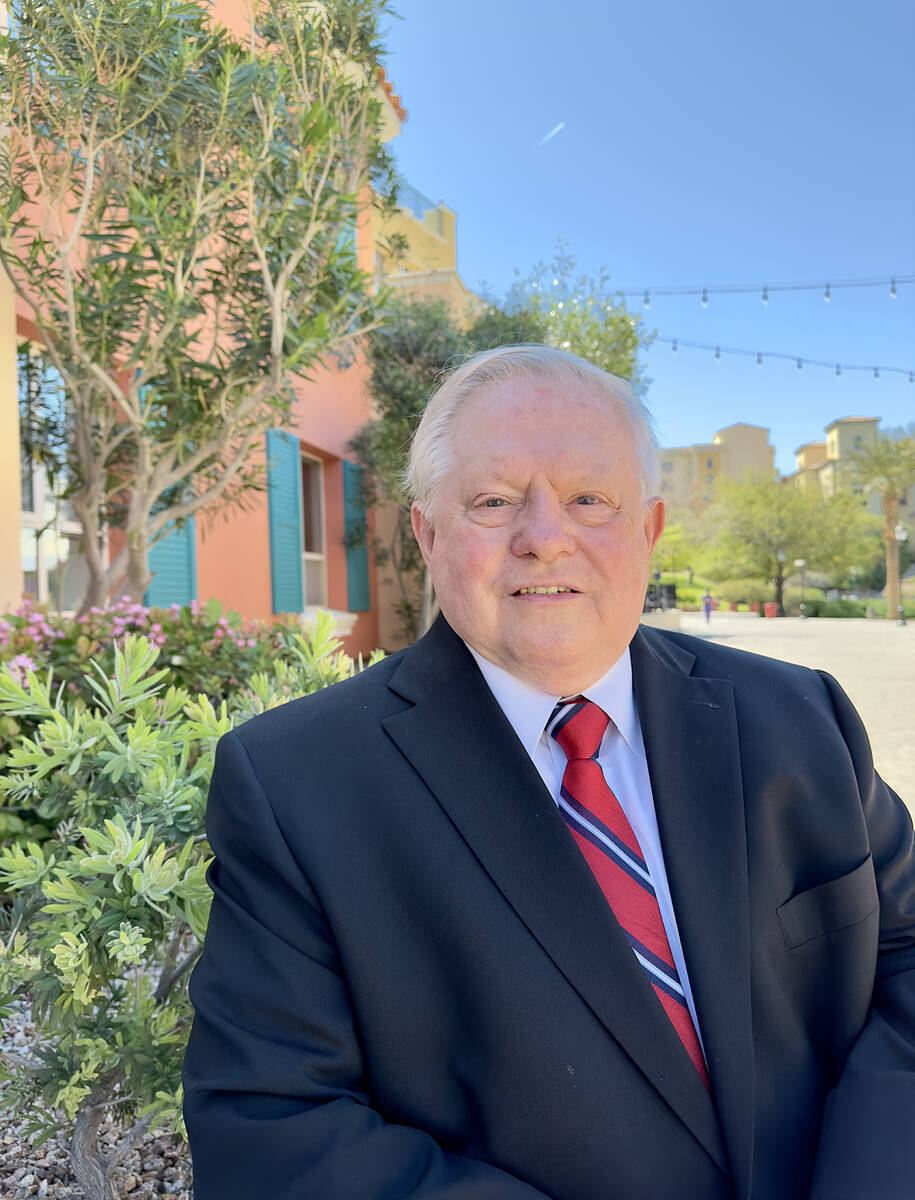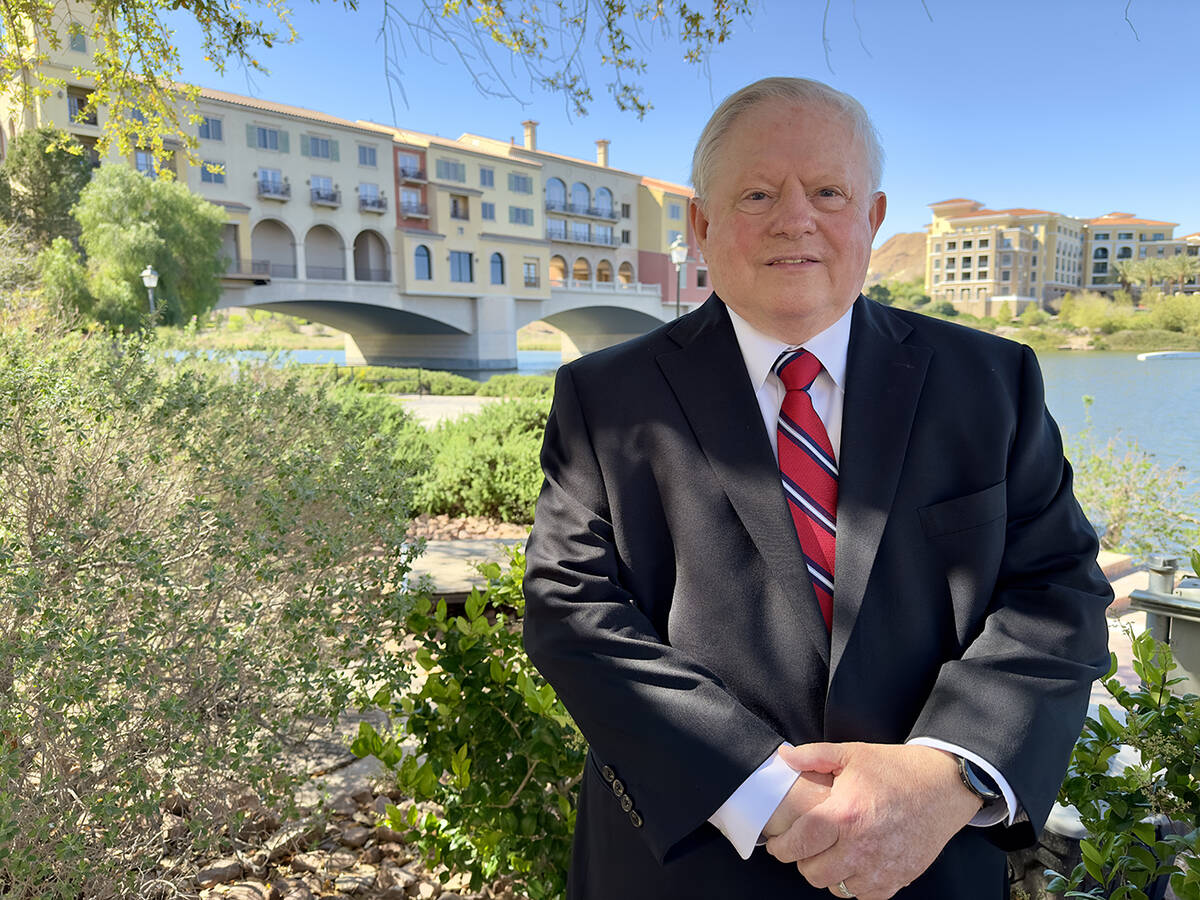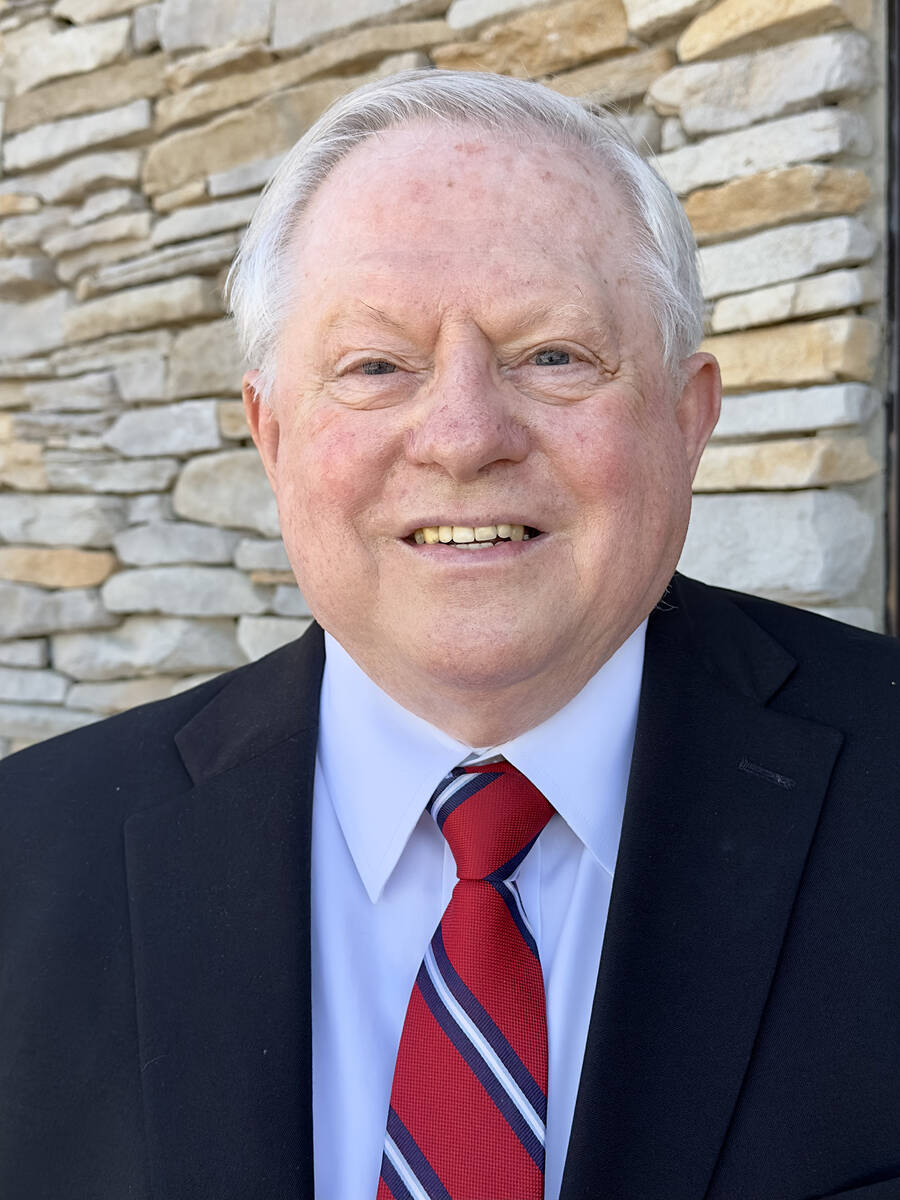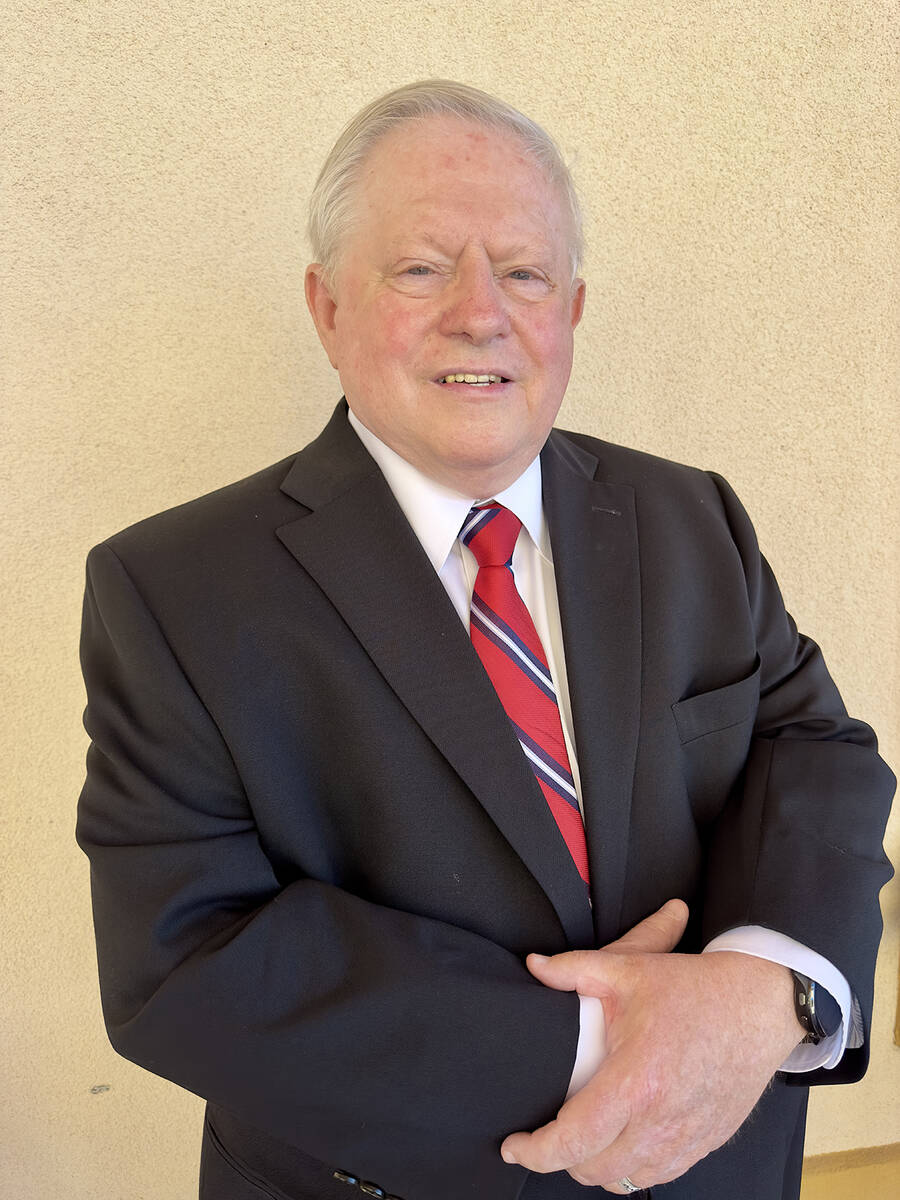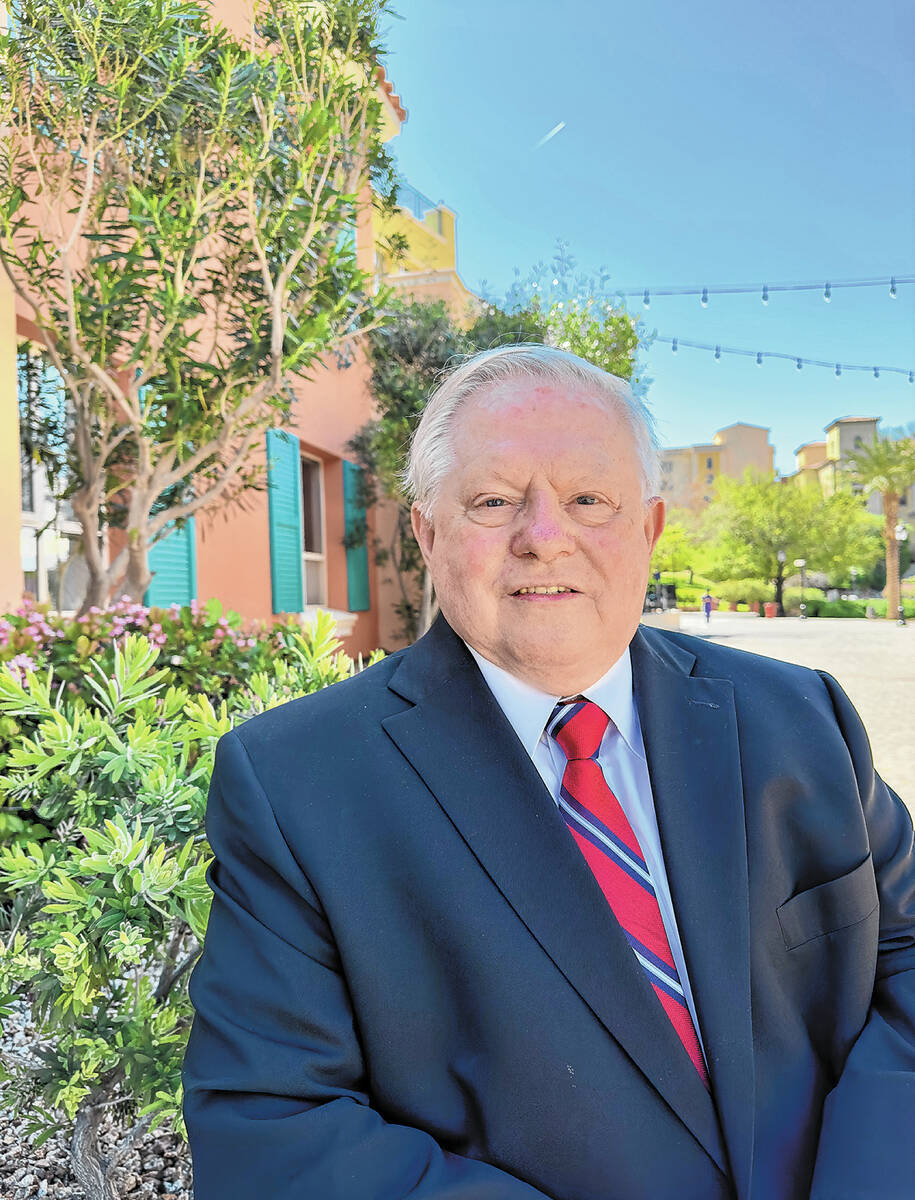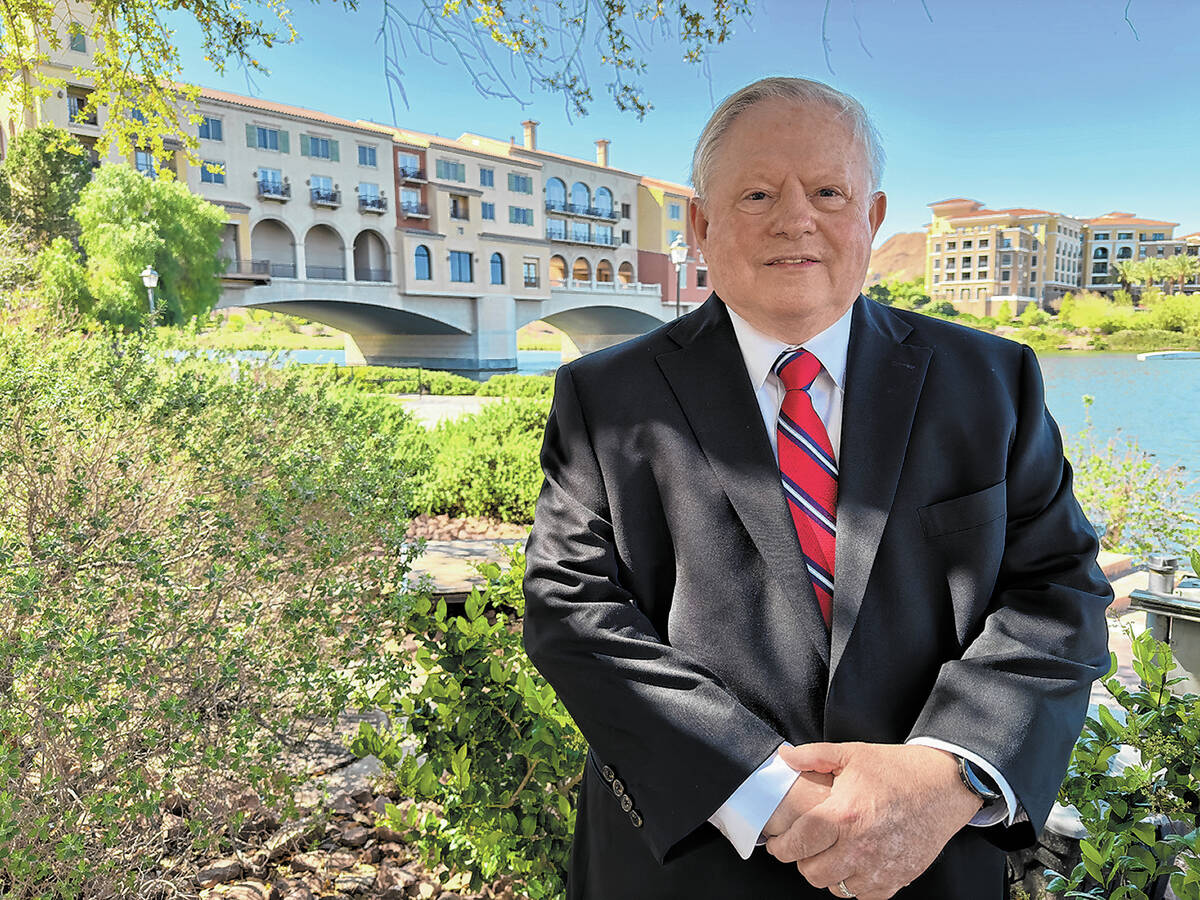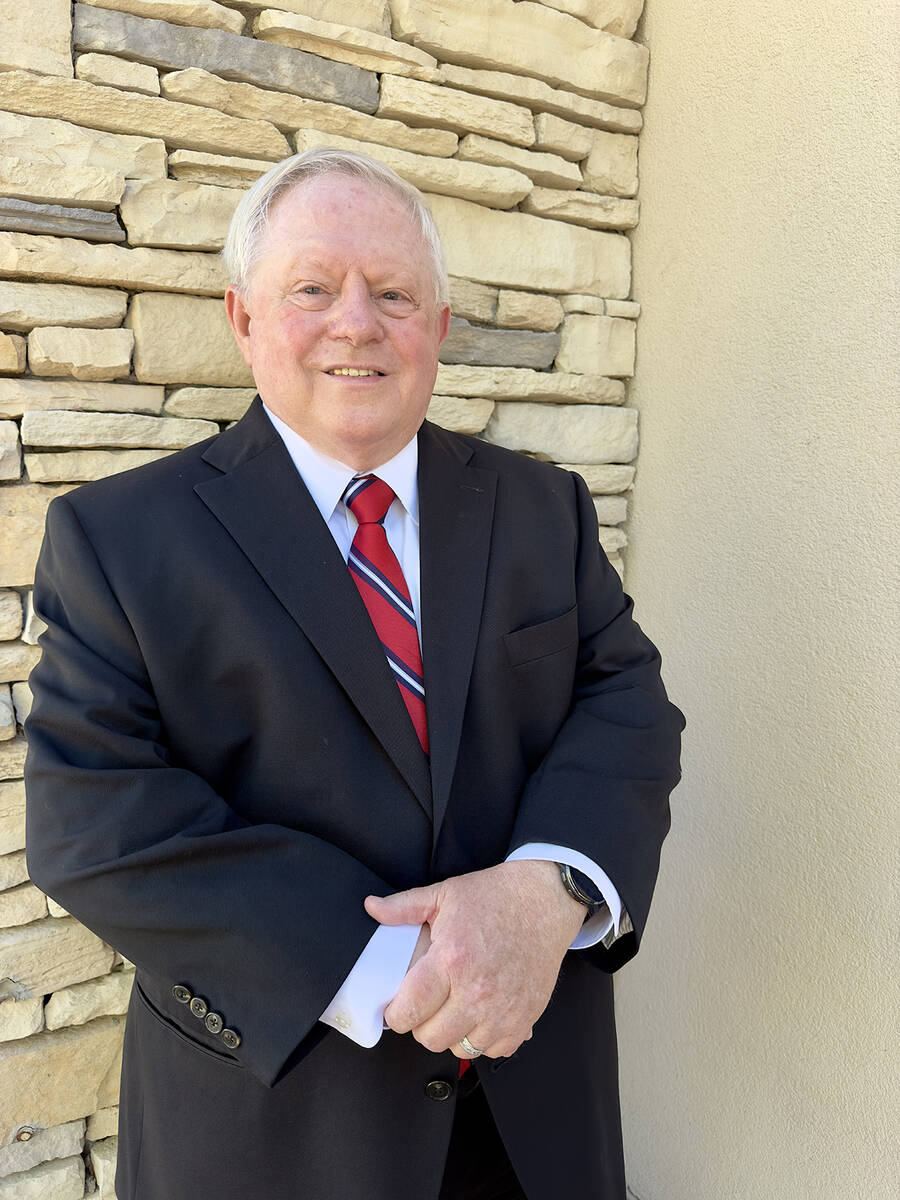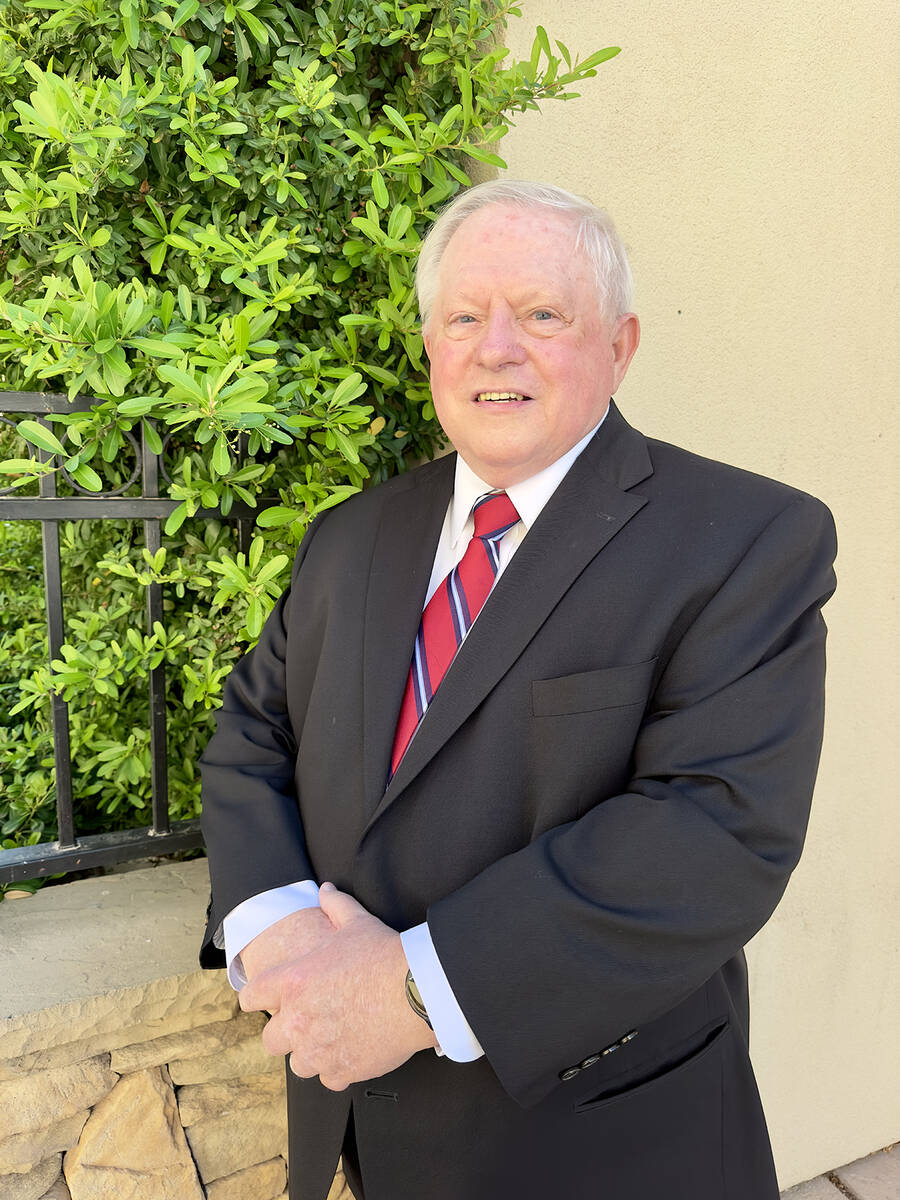Berkshire Hathaway HomeServices Nevada Properties corporate broker Forrest Barbee leads a busy life these days.
The Lake Las Vegas resident recently started his term as a member of the Nevada Real Estate Commission following his appointment to a three-year term in March by Gov. Joe Lombardo.
A member of the Las Vegas Realtor’s association Hall of Fame and former Realtor of the Year, Barbee in his capacity with Berkshire Hathaway also oversees offices in Arizona and Southern California.
Barbee came to Las Vegas in 2000 after moving from Pennsylvania and started his real estate career in Southern Nevada.
Barbee, 75, has a varied background, once working as a communications officer for nuclear submarines while serving in the Navy. He later served in the Marines utilizing his communications engineering degree and served with a helicopter squadron during an overseas tour.
Barbee obtained a management degree from USC while in the military and ultimately used that background that included statistics and organizational psychology in the civilian workforce.
Barbee worked for AT&T in the Bay Area providing data services to companies and later transferred to New Jersey. He eventually went to Pennsylvania where he worked as a manager in an adult education program at a community college and later came to UNLV and worked on improving technology in the classrooms.
Q: How did you get into real estate?
A: I was at UNLV and saw there were some opportunities in real estate here. I really wanted to be in real estate management. … (It) was not like Vegas, today. It was a lot less mature and seemed like the educational requirements in real estate could use a boost.
Q: When was that?
A: I started studying in late 2002 and (became) affiliated with Prudential Americana (which ultimately became Berkshire Hathaway) in 2003. I knew I wanted to be in management but I also knew from my work in the phone company you need to start at the bottom and understand what is going on. I knew I needed to learn a lot about real estate transactions. I started out as a sales person but at the time joined the education committee of the Greater Las Vegas Association of Realtors (which is now Las Vegas Realtors) and got involved in board activities. That was an easy way to meet all of the leaders in real estate and learn what’s going on in real estate in this town.
Q: Where did you go from there?
A: I was in a small office in Summerlin and sitting in the bull pen and found myself helping agents even though I had only been there a couple of days. Because of my military experience and things I did for AT&T I always had a good background in contracts and negotiations. It was a strength for me and found it very easy to help other agents. Sometimes, I would do more of that than my own transactions. That’s when I realized I like helping agents and like mentoring agents in ways that they need. It went from there and one day the manager asked me if I would like to be in management and I said, hell, yes. It was only a few months later. I was only in the business a year when I became a sales manager and then branch manager. In 2006, I became a broker and had less than three years of real estate experience.
Q: What were you hired as a corporate broker to do at the time?
A: My responsibility was the day-to-day stuff and handling the bad transactions, agents going to ethics hearings or arbitration cases or being litigated. That freed up the owner, Mark Stark, so he could work on the vision of the company and where it would go in the future.
Q: Are your duties the same today?
A: I get involved in even more litigation and more of the ethics hearings arbitrations. The only difference now is I do it for four different companies in three states. Two brokerages in Orange County and Palm Springs, California, one in Arizona headquartered in Scottsdale and here. I only recently became the designated broker in Arizona and became the designated broker in California in 2016.
Q: How do you handle all of the states?
A: It’s about 3,000 agents. The trick is a matter of philosophy. One of the things I find most brokers do poorly is delegate. A lot of them want to be very controlling, and you can do that when you’re very small. If you’re going to be able to function in a larger environment, the one thing you have to let go of is the desire to have control. You rely on your ability to clean up messes and fix things. You have to depend on everybody else and manage the chaos.
Q: How do you see the Las Vegas market right now and how does it compare to neighboring states?
A: All the states are seeing the same strong demand in the high end of the market. You see flares of distressed sales here and there. Prices are still going up in Orange County and they are softer in the California desert. Prices are going sideways in Arizona where the market seems to be more seasonal than we are and slow down because of the heat. Here, prices are trending sideways with a little bit up and a little bit down. It depends on each month. In all these cases, you are looking at a situation where the supply is not up to the demand.
Q: How are higher interest rates impacting Las Vegas?
A: The high end seems to have no problem working around that. Clearly, the challenge is with the lower end of the market and even in the middle. They’re saying I will sell my house, but I have to buy something first. One of the bigger challenges is, more than in the past, where you are seeing a whole lot of transactions where the seller is asking to stay a couple of weeks to a month in their home after they’ve closed because they need to move out and get to where they are going. There’s a lot more selling a house contingent on buying something else or buying this contingent upon selling. There’s a lot of these transactions that get tied together, and that can be a challenge because if one fails they all fail.
Q: Who are these buyers?
A: A lot of it is people coming from out of state driving things in Arizona and Nevada. But we got a lot of people here who want to upgrade, which is becoming more difficult to do. With gasoline prices where they are and inflation the way it is, somebody who thought it was a good idea to be 25 to 30 miles from where they work, right now (it) doesn’t seem like a good idea as it did before. More people are trying to move closer to work when they can. New homes solve a lot of problems. They are energy efficient, and people are cutting down on their utility bills.
Q: What is happening with people waiting out higher interest rates?
A: Some people are waiting for them to come down but some have finally realized maybe I should start in a condo or town home because it’s more affordable and build some equity and start somewhere. They have had a pretty good run. Single-family homes for the last two years have stalled. The new-home market is building a lot of attached homes.
Q: Will it take interest rates coming down before people put their homes on the market?
A: The ones we have sold at 3 percent interest rates unless they have some other motivation, they will be reluctant to leave that situation and get into a 7 percent loan and be paying more than what they are for what they have. There’s that whole crowd that’s going to sit on that a lot longer. If rates are under 6 percent, people are less panicky. I think 5 percent and 6 percent are not bad rates. Many of us bought when they were 12 percent and 13 percent.
Q: How did you get involved with the Real Estate Commission?
A: I got involved in 2006 or 2007, and it was an interesting case with one of our people and his client. I had to sit through hearings and then I became a regular. I joked about being a season ticket holder to the real estate hearings. I realized the importance of how the real estate commissioners interpret the statutes in light of current practices. It was useful in providing guidance to agents on how to conduct transactions knowing this is how the division looks at life. I got hooked on it.
Q: What does the Commission do?
A: The five commissioners work with the administrator to maintain compliance. They are like an impartial panel to hear the case and rule on the findings of fact and violations of law. There’s a disciplinary side and also education oversight and being an advisory group to the Real Estate Division. We also look out at the industry and what changes are needed. A little bit is trying to look forward in the industry and see where we are going. That’s going to be challenging because the industry is changing, and we don’t know how that will affect things that we do at the Real Estate Division when the National Association of Realtors starts supplementing rule changes in the fall (on how commissions are being offered in advertising).
Q: How is it going?
A: This is one of the most fulfilling things I have ever done. I’m thrilled.

